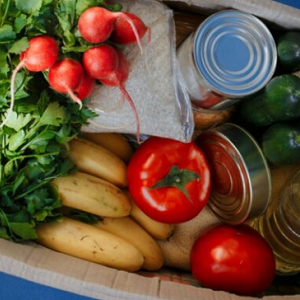A recent study reveals significant disparities in perceived discrimination among food pantry clients in Massachusetts, with Hispanic individuals facing the brunt of unfair treatment. The research, conducted by The Greater Boston Food Bank and MassGeneral for Children, sheds light on the challenges faced by marginalized communities seeking food assistance.
The study, which surveyed 702 food pantry clients, found that 83% of respondents reported experiencing everyday discrimination, while 54% reported discrimination specifically at food pantries. Hispanic clients were 1.83 times more likely to report discrimination at food pantries compared to non-Hispanic White clients.”Our findings suggest that addressing discrimination is crucial for improving food security and health outcomes,” said the study’s lead author. “Food banks and pantries need to understand the experiences of discrimination among their clients to develop more inclusive and equitable services.”
The research also uncovered that younger adults, those with higher incomes, and individuals identifying as LGBTQ+ were more likely to report experiencing everyday discrimination. Notably, 51% of Hispanic clients expressed concerns about documentation requirements at food pantries, highlighting a specific barrier for this community.
To combat these issues, the researchers recommend implementing unconscious bias training and diversity, equity, and inclusion initiatives within food assistance programs. They also stress the importance of collaborating with individuals who have lived experiences of discrimination to develop more equitable policies and programs.
This study underscores the need for a comprehensive approach to addressing food insecurity that takes into account the diverse experiences and challenges faced by different racial and ethnic groups. By tackling discrimination head-on, food assistance programs can better serve all members of the community and work towards reducing health disparities.
See “Perceived Discrimination Among Food Pantry Clients in Massachusetts” (September 12, 2024)



